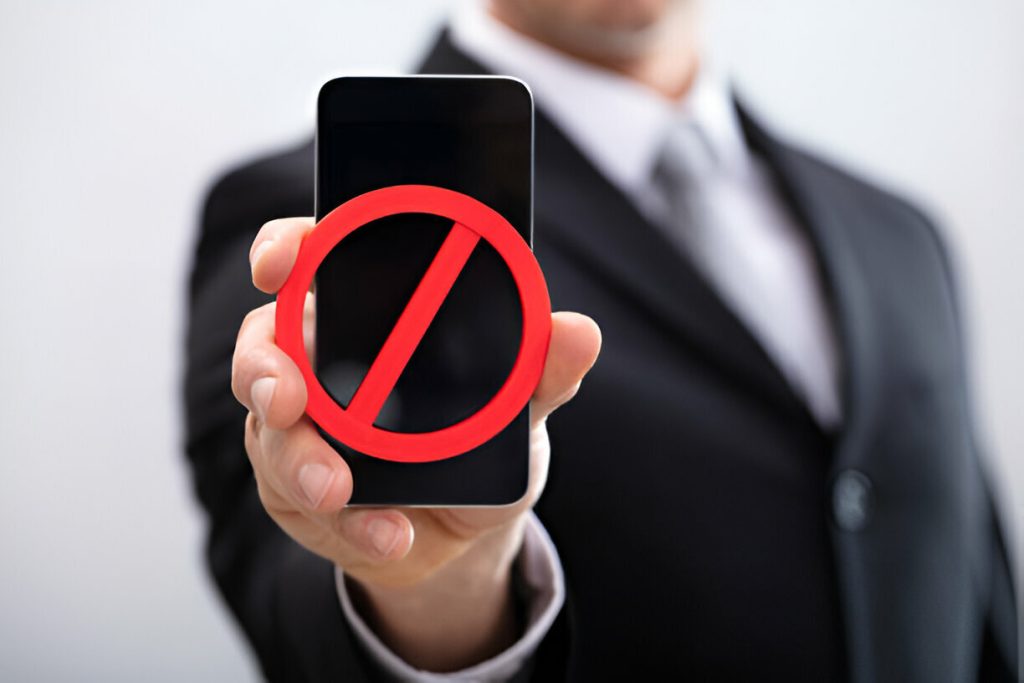Are you curious about when the first presidential debate for 2024 will be? Look no further! In this article, we’ll provide you with all the information you need. The Commission on Presidential Debates (CPD) has announced that there will be three presidential debates and one vice presidential debate in 2024. The first debate is scheduled for September 16, 2024, at Texas State University in San Marcos, Texas. Get ready to witness this historic event that will shape public opinion in the race for the White House.
Overview of the 2024 Presidential Debates
When will the 2024 Presidential Debates take place? The 2024 Presidential Debates are scheduled to begin on September 16, 2024, at Texas State University in San Marcos, Texas. The second debate will be held on October 1 at Virginia State University in Petersburg, Virginia, followed by the third debate on October 9 at the University of Utah in Salt Lake City, Utah. These debates will play a crucial role in shaping public opinion and influencing the outcome of the election. The format of the debates, as well as the candidates’ preparation, will greatly impact the effectiveness of their arguments and ability to connect with voters. The public’s perception of the debates can heavily influence their decision-making process when it comes to selecting a presidential candidate. Additionally, the role of moderators in maintaining a fair and balanced discussion is of utmost importance. Their ability to ask probing questions and keep the candidates on track can greatly enhance the quality and impact of the debates. Overall, the 2024 Presidential Debates will be a critical moment in the election process, shaping public opinion and potentially swaying voters.
Details of the First Presidential Debate
The first presidential debate in 2024, scheduled to take place on September 16, will be a pivotal moment in the election process. As the candidates prepare for this crucial event, the format of the 2024 presidential debate will play a significant role in shaping the discussion. The debate will follow a traditional format, allowing the candidates to present their policy positions and engage in direct exchanges. The moderators of the debate, who will be announced at a later date, will play a crucial role in ensuring a fair and balanced discussion. They will guide the conversation, ask probing questions, and maintain order throughout the debate. As the date approaches, the audience has high expectations for this event. They anticipate a robust and substantive discussion on critical issues facing the nation, such as the economy, healthcare, foreign policy, and climate change. The debate topics will be carefully chosen to reflect the pressing concerns of the American people. Ultimately, the first presidential debate in 2024 will provide voters with valuable insights into the candidates’ positions and their ability to lead the country.
Date and Location of the First Presidential Debate
Now, let’s delve into the details of the highly anticipated first presidential debate in 2024 by exploring the specific date and location. The first presidential debate is scheduled to take place on September 16, 2024, at Texas State University in San Marcos, Texas. This historical event will kick off the series of three presidential debates and one vice presidential debate organized by the Commission on Presidential Debates (CPD). The CPD, a 501(c)(3) organization, has been responsible for sponsoring and organizing general election debates since 1988.
To provide a clear overview of the debate schedule, here is a table showcasing the dates and locations of the 2024 presidential debates:
| Debate Number | Date | Location |
|---|---|---|
| 1 | September 16 | Texas State University, Texas |
| 2 | October 1 | Virginia State University, Virginia |
| 3 | October 9 | University of Utah, Utah |
| VP | September 25 | Lafayette College, Pennsylvania |
As for the debate format, candidate eligibility, debate moderators, and debate scheduling, further details will be announced by the CPD next year. It is important to note the historical significance of these debates, as they provide a platform for candidates to showcase their policies and engage with voters. Additionally, Texas State University, Virginia State University, and the University of Utah will be hosting debates for the first time, with Virginia State University being the first historically Black college or university to host a general election debate. Stay tuned for more updates on this influential event in the 2024 presidential race.
Schedule and End Date of the Debates
Let’s now delve into the schedule and end date of the debates in the highly anticipated 2024 presidential race. Here are some key points to consider:
- Scheduling Change: The debates will start earlier than ever before, allowing for more time for voters to assess the candidates. This change aims to address concerns about the compressed timeline between the debates and Election Day in previous cycles.
- RNC Withdrawal: The Republican National Committee (RNC) withdrew from participation in the commission responsible for organizing the debates. The RNC cited bias and a lack of reforms as reasons for their decision. This withdrawal has created uncertainty regarding the participation of the Republican nominee and the potential for alternative debate formats.
- Hosting Schools: Texas State University, Virginia State University, and the University of Utah will host the debates for the first time. Of particular significance is Virginia State University, which will be the first historically Black college or university to host a general election debate.
- Eligibility Criteria: Candidates must meet certain criteria to be invited to the debates. This includes being constitutionally eligible to serve as president, being on the ballot in enough states to win a majority of the electoral votes, and registering at least 15% in polls selected by the commission. Further details about the debate format and moderators will be announced in the future.
As the 2024 presidential race unfolds, these factors will shape the schedule and end date of the debates, adding an element of uncertainty and anticipation to the electoral process.
Uncertainty Surrounding the Debates
Get ready for the uncertainty surrounding the debates in the highly anticipated 2024 presidential race. With scheduling conflicts, candidate participation, format changes, moderator selection, and public perception all playing a role, the debates are sure to be a topic of intense speculation and discussion.
To better understand the potential challenges and unknowns, let’s take a look at the table below:
| Uncertainties Surrounding the Debates |
|---|
| Scheduling conflicts |
| Candidate participation |
| Format changes |
| Moderator selection |
| Public perception |
Scheduling conflicts could arise due to the busy campaign schedules of the candidates. With multiple events and appearances to attend, finding a suitable time for the debates may prove challenging.
Candidate participation is another factor to consider. While it is expected that the nominees from the major parties will participate, there is always the possibility of a candidate refusing to participate for various reasons.
Format changes may be implemented to address concerns raised in previous debates. This could include alterations to the structure, timing, or topics covered during the debates.
Moderator selection is another critical aspect. The choice of moderators can greatly influence the tone and direction of the debates, and there may be discussions and debates regarding the impartiality and fairness of the selected moderators.
Lastly, public perception plays a significant role in the debates. How the debates are perceived by the public can shape opinions and influence voter decisions. The candidates and organizers will need to navigate this aspect carefully.
Hosting Schools and Historical Significance
When will the hosting schools and their historical significance be explored in the article?
- Texas State University
- Virginia State University
- Historical significance
- First time hosts
The hosting schools for the 2024 presidential debates, Texas State University and Virginia State University, hold great historical significance as first-time hosts. Texas State University, located in San Marcos, Texas, will be hosting the first presidential debate on September 16, 2024. This marks a significant moment for the university and the state of Texas as they take on the responsibility of hosting such a prestigious event. Similarly, Virginia State University, located in Petersburg, Virginia, will host the second presidential debate on October 1, 2024. This is a historic moment for the university as it becomes the first historically Black college or university to host a general election debate. The selection of these schools as debate hosts showcases the commitment to diversity representation and highlights the importance of giving traditionally underrepresented institutions the opportunity to play a significant role in shaping the political discourse of the nation.
Invitation and Eligibility Criteria for Candidates
Continuing the exploration of hosting schools and their historical significance, let’s delve into the invitation and eligibility criteria for candidates participating in the 2024 presidential debates. The invitation process for candidates to participate in the debates is overseen by the Commission on Presidential Debates (CPD). To be considered eligible, candidates must meet certain requirements. First, they need to be constitutionally eligible to serve as president. Additionally, candidates must be on the ballot in enough states to win a majority of the electoral votes. Moreover, candidates need to register at least 15% in polls selected by the commission. These criteria ensure that only viable candidates who have gained a significant level of support from the public are included in the debates. The details about the debate format and moderators will be announced closer to the time of the debates. The CPD, a non-profit organization, has sponsored every general election debate since 1987 and is responsible for organizing and establishing guidelines for the debates. By setting clear eligibility criteria and a polling threshold, the CPD aims to ensure that the debates include candidates who have a realistic chance of winning the presidency, facilitating a meaningful exchange of ideas and policies on the national stage.
Primary Debates in 2024
The primary debates in 2024 will showcase the candidates’ positions and strategies leading up to the general election. These debates will play a crucial role in shaping voter opinions and determining the direction of each party. Here are some key points about the 2024 primary debate schedule:
- Republican Party debates: The Republican National Committee (RNC) has sanctioned four debates from August 23, 2023, to December 6, 2023. After the fourth debate, the RNC lifted its ban on non-RNC sanctioned debates, and three additional debates have been announced, with the next one scheduled for January 10, 2024.
- Democratic Party debates: Unlike the Republican Party, the Democratic Party does not plan on holding primary debates. It is unclear at this time whether President Biden would participate in any debates.
- Eligibility criteria for candidates: To participate in the primary debates, candidates must meet certain criteria, including constitutional eligibility to serve as president, being on the ballot in enough states to win a majority of the electoral votes, and registering at least 15% in polls selected by the Commission on Presidential Debates (CPD).
- Role of the Commission on Presidential Debates: The CPD is responsible for organizing the primary debates as well as the general election debates. It is a 501(c)(3) organization that sponsors and establishes guidelines for these debates. The CPD has sponsored every general election debate since 1988 and plays a crucial role in ensuring a fair and balanced platform for candidates to present their ideas.
Role of the Commission on Presidential Debates
The Commission on Presidential Debates plays a crucial role in organizing and establishing guidelines for the primary and general election debates. Its significance lies in ensuring that the debates are conducted in a fair and structured manner, allowing the candidates to present their views and policies to the public. The commission has the responsibility of determining the eligibility criteria for candidates to participate in the debates. This includes constitutional eligibility, being on the ballot in enough states to win a majority of the electoral votes, and registering at least 15% in polls selected by the commission. Additionally, the commission is responsible for announcing the debate format and moderators, which plays a pivotal role in shaping the tone and direction of the debates. Over the years, the commission has faced calls for changes, including demands for term limits for board members, a code of conduct, and transparent criteria for selecting moderators. The commission’s role in organizing and overseeing the debates ensures that they remain a significant aspect of the presidential election process, allowing voters to make informed decisions based on the candidates’ performances and policies.
Republican National Committee Calls for Changes
To address concerns about the debate process, the Republican National Committee (RNC) has called for changes to be made by the Commission on Presidential Debates (CPD). The RNC has outlined several key requests to improve the debate system:
- Term limits: The RNC is requesting term limits for CPD board members. This would ensure fresh perspectives and prevent the concentration of power within the commission.
- Code of conduct: The RNC is calling for the establishment of a code of conduct for all participants in the debates. This would set clear expectations for behavior and ensure a respectful and productive exchange of ideas.
- Transparent criteria: The RNC is asking for transparent criteria to be developed for the selection of moderators. This would ensure fairness and prevent any perceived bias in the choice of moderators.
- Consequences for violating rules: The RNC is advocating for the implementation of consequences for candidates who violate the rules of the debate. This would help maintain order and hold participants accountable for their actions.
Additionally, the RNC is proposing penalties for moderators who violate the guidelines set forth by the CPD. This would help ensure that moderators act impartially and uphold the integrity of the debate process.




